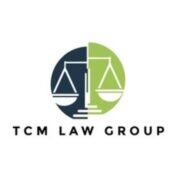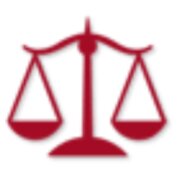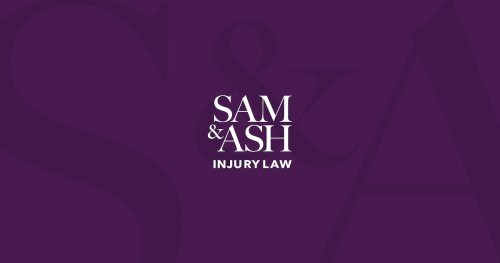Best Toxic Mold Lawyers in Las Vegas
Share your needs with us, get contacted by law firms.
Free. Takes 2 min.
List of the best lawyers in Las Vegas, United States
About Toxic Mold Law in Las Vegas, United States
Toxic mold is a lay term often used to describe certain types of mold that produce mycotoxins or cause allergic and respiratory reactions in people. In Las Vegas, as in the rest of Nevada, legal issues around mold usually arise when mold growth causes property damage, creates unhealthy living or working conditions, or leads to medical problems. There is no single "toxic mold" statute. Instead, claims are handled under several areas of law - landlord-tenant law, real estate disclosure, insurance law, construction and contractor liability, premises liability, and personal injury. Local agencies may investigate health and building code issues, while courts decide civil liability and damages.
Why You May Need a Lawyer
Legal help can be important when mold impacts your health, safety, or finances. Common situations where people consult a lawyer include:
- Landlord-tenant disputes where landlords fail to repair leaks, provide a habitable dwelling, or cover remediation costs.
- Insurance coverage denials or disputes about whether a policy pays for testing, cleanup, or property replacement.
- Real estate transactions where sellers or agents failed to disclose known or suspected mold problems.
- Construction or remediation disputes involving negligent work by contractors, subcontractors, or inspectors.
- Personal injury claims after significant health impacts allegedly linked to mold exposure.
- Multiple-tenant or building-wide problems where coordinated legal action may be needed to force repairs or pursue damages.
Local Laws Overview
Key legal aspects to understand in Las Vegas include the following general points:
- Landlord and habitability obligations - Nevada law and local ordinances require landlords to provide and maintain safe, habitable rental properties. Persistent leaks, lack of ventilation, or failure to remediate known mold can give tenants legal grounds to demand repairs, seek rent abatement, or pursue claims for damages, depending on the facts.
- Real estate disclosure - Sellers are generally required to disclose known material defects. A seller who knows about significant mold problems and fails to disclose them may face a claim for misrepresentation or rescission from the buyer.
- Insurance coverage - Homeowner and commercial policies vary. Some policies cover sudden, accidental water events that lead to mold, while others exclude mold or require additional endorsements. Insurers commonly dispute whether damage is covered or whether proper mitigation was performed.
- Contractor licensing and standards - Mold remediation and construction work in Nevada are subject to contractor licensing requirements. Work performed by unlicensed contractors can raise separate legal issues and may limit remedies.
- Building codes and permits - Large remediation or repairs may require permits and must comply with local building and mechanical codes enforced by Clark County and the City of Las Vegas.
- Health and code enforcement - The Southern Nevada Health District and local code enforcement offices can investigate and issue orders for unhealthy or unsafe conditions in some settings. Their findings can be useful in civil cases but do not replace private legal claims.
- Statutes of limitation and deadlines - Time limits apply to different kinds of claims - for example, personal injury, property damage, breach of contract, and warranty claims each have their own deadlines. These limits can be short, so prompt action is important.
Frequently Asked Questions
What exactly is "toxic mold" and is it a legal term?
"Toxic mold" is not a precise scientific or legal term. It generally refers to mold species that can produce mycotoxins or irritate sensitive people. Legally, issues focus on whether mold caused harm, whether a responsible party knew or should have known about the condition, and whether required repairs or disclosures were made. Courts evaluate evidence about species, exposure, and causation rather than rely on a single label.
How do I know if mold in my home is a legal problem?
A legal problem may exist if mold results from negligence or a failure to act - for example, a landlord who does not fix a known roof leak or a contractor who performs faulty work that leads to prolonged moisture invasion. If mold causes property damage, health problems, or violates building or health codes, consult a lawyer to evaluate possible claims.
Who is responsible for cleaning up mold in a rental property?
In most cases, the landlord is responsible for keeping rental units habitable and addressing conditions that cause mold, such as leaks or inadequate ventilation. Tenants should report issues in writing and allow reasonable time for repairs. Remedies for failure to act may include repair-and-deduct rights where allowed, rent withholding in limited circumstances, or filing a lawsuit. Check your lease and document all communications and conditions.
Will my homeowners or renters insurance cover mold damage?
Coverage depends on your specific policy language and the cause of the mold. Many policies cover mold resulting from a sudden, accidental event (for example, a burst pipe) but exclude mold resulting from long-term neglect or poor maintenance. Some policies have sublimits or require separate mold endorsements. If your insurer denies coverage, an attorney experienced in insurance disputes can review the policy and the denial.
Can I sue a seller or real estate agent for failing to disclose mold?
Yes, if a seller or agent knowingly failed to disclose a known material defect, such as significant mold contamination, a buyer may have claims for misrepresentation, breach of disclosure duties, or rescission. Successful claims typically require proof that the seller knew or should have known about the condition and that the buyer relied on incomplete or inaccurate information.
What kind of evidence helps in a mold-related legal case?
Useful evidence includes dated photos and videos, written communications reporting the problem, inspection and lab test reports, repair and remediation invoices, receipts for temporary housing or replacements, medical records linking symptoms to exposure, and witness statements. Expert testimony from industrial hygienists, mold assessors, or medical professionals may be needed to establish causation and damages.
Should I test for mold before talking to a lawyer?
Testing can be helpful but is not always necessary for a legal claim. If you suspect mold, document the condition with photos, notify the responsible party in writing, and arrange for a qualified inspection or remediation assessment. Your lawyer can advise on the type of testing and experts needed based on your case.
What damages can I recover in a mold case?
Depending on the claim and evidence, recoverable damages may include the cost of repairs and remediation, diminution in property value, replacement of damaged personal property, temporary housing costs, medical expenses, and in some cases, pain and suffering or punitive damages if gross negligence or intentional misconduct is proven. Insurance and contract limits may affect recovery.
How long do I have to bring a claim?
Time limits vary by claim type - personal injury, property damage, breach of contract, and fraud each have different statutes of limitation. These deadlines can be short and can start when the damage was discovered or should have been discovered. Because of these varying timelines, consult an attorney promptly to preserve your rights.
How do I find a qualified mold assessor, remediator, or attorney in Las Vegas?
Look for licensed and experienced professionals. Mold assessors and industrial hygienists should have recognized credentials and references. Remediation contractors must hold the appropriate Nevada contractor license for the scope of work. For legal help, seek an attorney with experience in mold, construction, real estate, or insurance litigation. During consultations, ask about experience with local code and health agencies and whether the attorney handles cases on a contingency-fee basis if you fear upfront costs.
Additional Resources
Organizations and local bodies that can be helpful include:
- Southern Nevada Health District - for public health concerns and complaints about unhealthy building conditions.
- Clark County Building and Fire Prevention Departments and the City of Las Vegas Building Department - for building code and permit questions.
- Nevada State Contractors Board - for information about contractor licensing and complaints.
- Nevada Real Estate Division - for issues involving disclosure by sellers and duties of real estate professionals.
- State and local housing agencies - for tenant rights and habitability questions.
- Centers for Disease Control and Prevention and recognized industrial hygiene organizations - for general guidance on mold health effects and remediation principles.
- Industry standards such as recognized mold remediation and inspection guidelines - for understanding best practices in assessments and cleanup.
Next Steps
If you believe you have a mold problem that may require legal assistance, follow these steps:
- Document the condition - take clear dated photos and videos, keep copies of all communications, repair estimates, inspection and lab reports, and receipts for related expenses.
- Mitigate immediate harm - safely address active leaks or hazards to prevent further damage. Avoid costly remediation without authorization if you are relying on a landlord or insurer to act.
- Notify responsible parties in writing - inform landlords, sellers, contractors, or insurers about the problem and request timely remedial action. Keep copies of all notices.
- Seek medical evaluation if you have health symptoms - obtain medical records that document any diagnosis or treatment linked to mold exposure.
- Obtain professional assessments - hire a qualified mold assessor or industrial hygienist if needed to document the scope and cause of contamination.
- Contact a local attorney experienced in mold-related matters - bring your documentation, inspection reports, insurance policies, lease or purchase contracts, and a timeline of events. Ask about statutes of limitation and possible remedies.
- Consider alternative dispute resolution - mediation or demand letters can sometimes resolve disputes faster than litigation, but an attorney can advise on the best approach.
Acting promptly, preserving evidence, and working with experienced professionals will give you the best chance to protect your health, your property, and your legal rights in Las Vegas.
Lawzana helps you find the best lawyers and law firms in Las Vegas through a curated and pre-screened list of qualified legal professionals. Our platform offers rankings and detailed profiles of attorneys and law firms, allowing you to compare based on practice areas, including Toxic Mold, experience, and client feedback.
Each profile includes a description of the firm's areas of practice, client reviews, team members and partners, year of establishment, spoken languages, office locations, contact information, social media presence, and any published articles or resources. Most firms on our platform speak English and are experienced in both local and international legal matters.
Get a quote from top-rated law firms in Las Vegas, United States — quickly, securely, and without unnecessary hassle.
Disclaimer:
The information provided on this page is for general informational purposes only and does not constitute legal advice. While we strive to ensure the accuracy and relevance of the content, legal information may change over time, and interpretations of the law can vary. You should always consult with a qualified legal professional for advice specific to your situation.
We disclaim all liability for actions taken or not taken based on the content of this page. If you believe any information is incorrect or outdated, please contact us, and we will review and update it where appropriate.
















